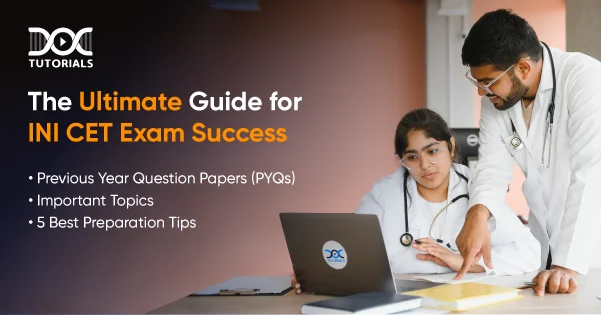Mesenteric Lymphadenitis: Causes, Risk Factors, Symptoms, Diagnosis, and Treatment Options

Lymphadenitis, or Lymphadenopathy, is an impairment in the functioning of the lymph nodes in our body. Due to their coinciding symptoms, mesenteric lymphadenitis is often misdiagnosed as appendicitis. One of the major causative factors is viral infection.
Mesenteric Lymphadenitis commonly affects children across all age groups.
To know more details about mesenteric lymphadenitis, visit DocTutorials’ courses today.
What is Mesenteric Lymphadenitis?
Mesenteric lymphadenitis refers to the inflammation of the lymph nodes in the abdominal region. The lymph nodes are responsible for the circulation of lymphatic fluid across the body.
The mesentery, a membrane connecting the bowel to the abdominal wall, contains a cluster of lymph nodes.
This inflammation is common among children, and they often suffer from chronic abdominal pain. This condition can often be misdiagnosed as appendicitis or intussusception. However, mesenteric lymphadenitis is a benign condition, and it often resolves soon.
What are the Major Causes of Mesenteric Lymphadenitis?
Mesenteric Lymphadenitis is often food-borne, as it is mostly an infectious disease. Some of the major causes and risk factors of lymphadenitis include:
Causes by Infections
- Viral Infection: One of the major causes of mesenteric lymphadenitis is the stomach flu or gastroenteritis.
- Bacterial Infection: The bacteria in undercooked meat is also one cause of mesenteric lymphadenitis. The most common agent is Yersinia enterocolitica.
- Opportunistic Infection: Infections occur along with some other major infections, which suppress the immune system, such as HIV infection.
- Tuberculosis: The lymphadenitis could be an extrapulmonary symptom of tuberculosis as well.
Causes by Inflammation
- Appendicitis: It is defined as the inflammation of the appendix due to any reason.
- Cancers: Cancers like lymphoma and gastrointestinal cancer.
- Diverticulitis: It is defined as the inflammation of the pouches present in the wall of the large intestine.
- Inflammatory Bowel Disease: The inflammatory bowel disease is a chronic disease associated with gut inflammation.
- Pancreatitis: Pancreatitis refers to the inflammation of the pancreas, the organ responsible for controlling serum glucose levels.
What are the Symptoms of Mesenteric Lymphadenitis?
The symptoms of mesenteric lymphadenitis are mostly generalised and show many similarities to other abdominal infections. The major symptoms include:
- Abdominal pain, majorly affecting the lower right quadrant of the belly.
- Tenderness in the abdomen
- Nausea and vomiting
- Diarrhoea
- Pyrexia (Fever)
- Enlargement of the lymph nodes
Engorgement of the lymph nodes in the abdomen causes pain, while infection in the intestines causes diarrhoea, nausea, and vomiting.
What is the Diagnosis of Mesenteric Lymphadenitis?
To understand the condition and severity of Lymphadenitis, healthcare workers may ask for the patient’s history and proceed to a physical examination. Post-exam, they can ask questions like how long the disease has been going on and whether the patient had any other diseases before the infection started.
The patient may also be recommended some blood tests, such as a Complete Blood Count (CBC). Since the lymph nodes are more clustered near the appendix, the symptoms resemble appendicitis.
Some other tests which are suggested for the diagnosis of mesenteric lymphadenitis include imaging studies like Computed Tomography Scan (CT Scan) or Ultrasonography to rule out the possibility of appendicitis.
Since appendicitis is quite a serious complication, it is essential to be completely sure when ruling out the possibility of appendicitis.
What are the Treatment options available for Mesenteric Lymphadenitis?
Most cases of mesenteric lymphadenitis are self-limiting. They usually disappear on their own for four weeks or more. However, if the pain and fever are too severe, the doctor can prescribe general pain medications and antipyretics.
However, Aspirin is only approved for use in children over the age of 3. Children recovering from chicken pox and flu should not be prescribed Aspirin, either.
Aspirin is known to have a link with Reye’s Syndrome, a quite dangerous condition for children. It can even be life-threatening sometimes. Your doctor can even suggest some antibiotics to control the infection.
How to Prevent Mesenteric Lymphadenitis?
There are a few basic tips to prevent lymphadenitis from happening. Some of them are listed below:
- Hand sanitisation with soap and water at regular intervals.
- Maintain a safe distance who is a patient with lymphadenitis.
- Practising hand hygiene before touching any food item.
- Maintain hygienic conditions when preparing the food.
- Proper cooking of food to prevent transmission of pathogens.
- Use separate utensils and cutting boards for meat and vegetables
- Use safe water for drinking purposes.
FAQs about Mesenteric Lymphadenitis
- What is the primary cause of mesenteric lymphadenitis?
The primary cause of mesenteric lymphadenitis includes gastroenteritis, a condition which is caused by viruses.
- Does lymphadenitis require surgery?
Lymphadenitis, which is chronic, may require surgery to aspirate the fluid for culture and to remove the affected node if required.
- How long does it take to treat mesenteric lymphadenitis?
Lymphadenitis usually takes somewhere between one to four weeks to resolve.
- What should be the diet for someone who has mesenteric lymphadenitis?
Patients suffering from mesenteric lymphadenitis should choose easy-to-digest foods, such as liquid food, toast, boiled vegetables, bananas, crackers, scrambled eggs, baked chicken, and so on.
- Which antibiotics are best suited for mesenteric lymph nodes?
For a patient suffering from mesenteric lymphadenitis, any antibiotic from the list of trimethoprim-sulfamethoxazole (TMP-SMX), third-generation cephalosporins, fluoroquinolones, aminoglycosides, and doxycycline should be selected. These are some of the broad-spectrum antibiotics.
Conclusion
Mesenteric lymphadenitis may seem scary, but it all depends on one’s knowledge of the condition. This article covers most of the aspects of mesenteric lymphadenitis that you must know to gain an in-depth knowledge of the topic.
To enhance your knowledge and shine amongst your peers in the NEET PG exam, join DocTutorials today.
Latest Blogs
-

NEET PG Exam 2025- Date, Pattern, Marking Scheme, Subject Wise Weightage, and Exam Mode
NEET PG Exam 2025 is the ultimate gateway for medical graduates aspiring to pursue postgraduate courses in medicine, including MD,…
-

INI CET Exam 2025: Your Roadmap to Success – Key Topics, Strategies, and Lessons from Last Year’s Papers
The INI CET exam is more than just a test; it’s a significant milestone for many medical students aiming to…
-

INI CET Exam Success: Previous Year Question Papers & Ultimate Guide – INI CET PYQ
One can feel overwhelmed while preparing for the INI CET (Institute of National Importance Combined Entrance Test). A vast syllabus,…




